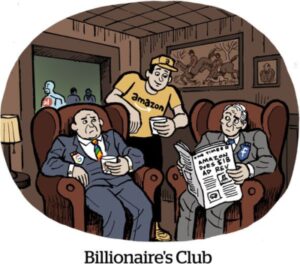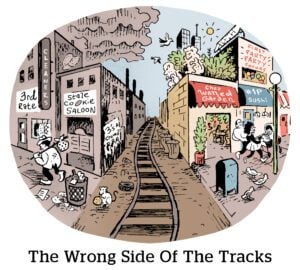Here’s today’s AdExchanger.com news round-up… Want it by email? Sign up here.
Bean Counter
A split between two state privacy laws in Maine shows how more data-driven businesses – not just Silicon Valley giants – are invested in the nuances of privacy standards and how consumer data can be used (or not).
Lobbyists at the state level typically represent huge companies like Alphabet, Meta and Amazon and cable TV providers, such as Comcast and Charter. State chambers of commerce, for instance, front Big Tech, not mom-and-pop shops.
But Politico reports that a new privacy law in Maine that would have established the toughest standards in the nation has been stalled by none other than L.L. Bean, the usually do-gooder retail store and Maine’s face to the world.
Why? A rival law is in line with other state standards and therefore more palatable to tech and business interests.
L.L. Bean says it doesn’t coordinate with Meta or other tech companies, but is “pushing its own views as a longtime retailer that needs customer data for analytics and advertising.”
There’s also the red tape: L.L. Bean is advocating for a law that would “provide a level of continuity among states,” says Jason Sulham, the company’s public affairs manager.
Not Playing Around
Google is on the hook for $700 million and needs to make changes to its Play Store policies to settle its lawsuit with the US attorney general, TechCrunch reports.
The class-action suit, which US states and consumers filed in 2021, alleged that Google’s app store exerted a monopoly over Android app distribution.
The changes Google must make relate to billing, third-party app stores, sideloading (which is when users install an app on their phone without using the built-in app store) and phone manufacturer terms.
For example, Google must give users the choice to install Android app installs via third-party app stores rather than only via the Play Store. It will now combine the pop-up warning screen and settings button that users currently see when they try to sideload an app into a single screen.
App developers will also be able to display non-Google Play billing options, including discounts. And Google can’t strike deals with device manufacturers to be their exclusive app store.
However, Google does retain a few key advantages. It can still charge 30% fees in its app store and put constraints on the distribution and payment choices developers are allowed to offer.
Rage Against The Machines
AI-generated content and machine-learning-controlled ad systems are taking greater control over budgets and campaigns. And some companies will very likely be blindsided by foreseeable errors and misfires.
First, the potential benefits: Google, Amazon and Meta increasingly prompt advertisers to adopt AI-generated content and tactics, and Amazon handles product imagery, descriptions and metadata. No muss, no fuss.
Google’s Performance Max – the bellwether machine-learning ad product – introduced AI-generated creative last month. It’s the first instance of campaign strategy, copy, creative production, media planning, optimization, the media buying itself and attribution all happening inside one black box.
But these tools can backfire on advertisers for obvious reasons – not to mention the lack of transparency and control. And AI tools can backfire on sellers, too.
One such service synthesizes hundreds or even thousands of product reviews on Amazon. But sometimes it identifies outlier “facts” – like what happened to tennis ball manufacturer Penn, which was tagged by Amazon’s AI for having a weird smell (which could divert purchases). This was included even though only seven of more than 4,000 reviews mentioned odor, Bloomberg reports.
Amazon says the customer AI tool works as planned – which is to say, that shoppers like it and it generates increased sales. But what about … reality?
“We care a lot about accuracy,” says an Amazon spokesperson.
But perhaps it’s not what they care about most.
But Wait, There’s More!
Amazon’s Neal Richter on AI’s impact on advertising. [Marketing Brew]
Inside the first “SEO heist” of the AI era. [Business Insider]
Brian Wieser on Amazon+Diamond, TV sports advertising and the benefits of reach. [Madison and Wall]
You’re Hired!
Digital marketing agency New Engen hires Andrew Richardson as SVP of advanced analytics and measurement. [release]


















